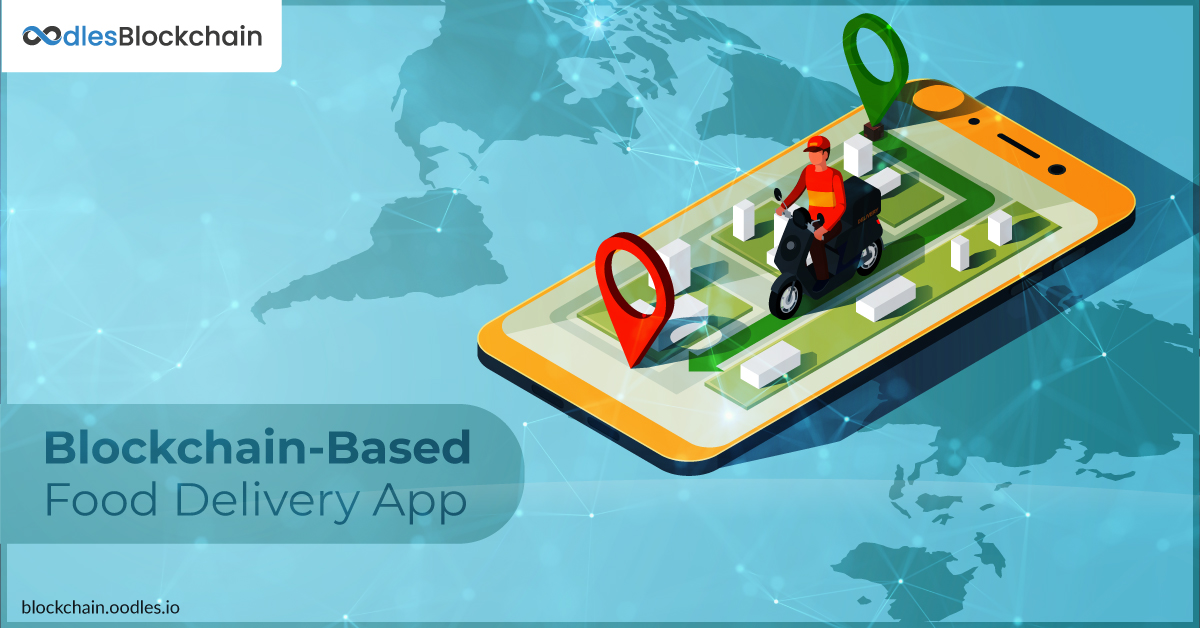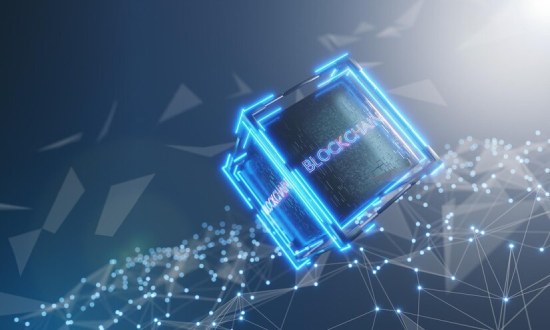-
A blockchain-based food delivery app can offer various benefits to developers, owners, and end-users. It is because blockchain supply chain management for the food industry is well-known for providing advantages like higher security, better transparency and traceability, and more in a business network. So, diverse industrial domains are adopting supply chain solutions built using blockchain platforms like finance, supply chain, healthcare, and others.
If we talk about blockchain application development for food delivery, the platform essentially provides an edge over traditional apps due to attributes like secure and seamless data storage and sharing.
To understand what advantages a mobile app can get when developed using blockchain, we will consider a case of a food delivery mobile app. We will analyze the impact of using blockchain as a database or underlying technology infrastructure for the mobile app.
So, let’s begin with understanding the key concepts of blockchain.
Key Concepts of Blockchain for Mobile App Development
Shared, Distributed Ledger
One of the primary attributes of blockchain is that transactions once approved and appended to it become immutable. It means nobody can alter any data without consensus, a mechanism for approving transactions, and changing the ledger’s state.
It also eliminates the chances of data duplications as transaction information is added after consensus or approval from network admins. Additionally, it enables all network participants access to transaction information. However, they can view only permitted transaction information.
Permissions
It is not necessary to enable ledger access to all participants. Blockchain solutions also provide the provision to prevent participants from viewing specific transactions. It strengthens security and ensures that only authentic participants in the network access information.
Consensus
A blockchain solution can only add transactions when there is a consensus between transacting users for a specific transaction. It means that not even network operators or stakeholders can alter or change the state of transactions on the ledger.
Consequently, it provides various advantages like end-to-end traceability, fast transactions, data security, and more. Thus, it makes sense to integrate blockchain into your business operations.
These are some of the perks that come with using blockchain as the underlying infrastructure to develop and run a mobile app. Now, let’s assess the type of blockchain participants to understand who plays what role in a network.
The Roles of Blockchain Participants in a Mobile App Development
Blockchain Mobile App Users
These are users who join a blockchain mobile app network to make transactions with other users in the network.
Regulators
Regulators have special permission to oversee each transaction occurring in the network by anyone.
Blockchain Mobile App Developers
Blockchain developers develop the mobile app and the blockchain network on which transactions and other activities work.
Mobile or Network Operators (Owner)
These are people who form, manage and observe the blockchain network.
Benefits of Developing a Food Delivery Mobile App with Blockchain
Tracking of Food Items
With blockchain technology, the tracking of food items is very easy. Barcodes and QR codes make the job much easier for companies. Moreover, businesses can regulate access to see the information of products.
Prevents Fraud
Strict security measures protect transactions and information from fraud and data tampering.
One can detect the possibility of foreign matter in food items with food tests. These tests also provide minute details like a batch of food, timings for execution, etc.
Blockchain protects all this data due to its immutable nature. It prevents fraud in the supply chain.
Food Safety
The mobile app could be loaded with features that allow you to get an update on your business issue in a few seconds. Thus, it prevents food items from going to waste. Moreover, you can get track of contaminated foods and safe foods.
Faster payments
Blockchain makes payment not only secure but faster as well. Blockchain makes the cross-checking process faster than traditional technology. So, an app could make your business free from the hassle of delays in payments.
Product Information
Product information is essential if you want to keep a track of all the product labeling information including products' prices and other essentials. A mobile application can ease this process by allowing only reliable suppliers to enter the chain.
Tracking of Food Volumes
Customers or suppliers can easily have information about food volumes bought and sold for each member of the supply chain. Thus, there is no need to have a central authority that one needs to trust.
Reducing Expenditure
Blockchain reduces expenses by removing the intermediaries so that participants can directly trade with each other. Thus, efforts reduce significantly to accomplish a task.
Better Privacy
User IDs and permissions allow users to choose which transaction details are required. Thus, a user can have better privacy, thereby building the trust of users.
Wrapping Up
Blockchain technology is one of the most sought-after technologies that can benefit various industries. Specifically, one can improve many areas in the food industry.
Many top brands like Unilever and Amazon have included blockchain to a great extent.
This is why top mobile app development companies like Oodles emphasize blockchain mobile app development with our expert pool of blockchain developers having fuelled various Fortune 500 companies.
Have an app development requirement? Contact us by visiting our website.

Our Offices
INDIA
Emaar Digital Greens, Sector 61,
Gurugram, Haryana
122011.
Welldone Tech Park,
Sector 48, Sohna road,
Gurugram, Haryana
122018.














